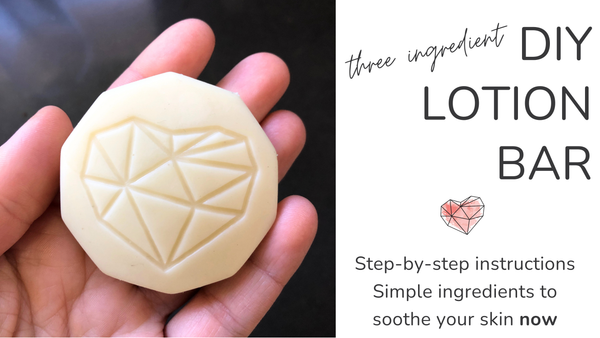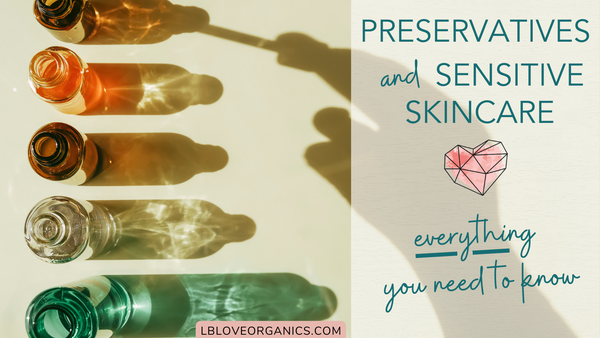8 Signs you have Sensitive Skin (and what is causing it)

(note: this article does not take the place of a medical diagnosis. Consult your doctor for care.)
What is sensitive skin?
We all have an incredible superpower- our skin! Skin is the body’s largest organ. It is a protective barrier between our vital internal organs and the harsh elements of our world: UV rays, wind, environmental pollution, and so on.
So what does it mean to have sensitive skin? In simple terms, sensitive skin is a genetic difference that occurs in some people, causing the outer layers of the skin to become inflamed or irritated easily. Some of us are born with an extra-sensitive protective barrier (thanks genetics!), but anyone can experience occasional skin sensitivities.
What does sensitive skin look like?
8 Common symptoms of sensitive skin:
-redness
-inflammation
-stinging or burning areas of skin
-itchy skin or flaky skin
-areas of super dry skin that may crack or bleed
-hives or rash
-broken skin
-patches of skin that feel dry, scaly, or leathery
These symptoms can show up all over the body, but are commonly on wrists, hands, fingertips, between fingers, lips, inside of elbows, and behind the knees.
Do any of these sound familiar? Even if you don’t have sensitive skin, you may have experienced these symptoms before. But what causes these symptoms?
What Causes Sensitive Skin?
The 3 main causes of sensitive skin:
Irritant Contact Dermatitis
Allergic Contact Dermatitis
Eczema aka Atopic Dermatitis
Irritant
This is the most common cause of sensitive skin. It happens when exposure to something- either physical or chemical- irritates the protective outer layers of the skin, causing redness, inflammation, rash, or a combination of these symptoms. The most common skin irritants found on product ingredient lists are Fragrance and Sodium Lauryl Sulfate (related: how to heal dry skin).
Allergic
This cause of sensitive skin happens when the skin has an allergic or immune response- often hives or rash- to an allergen or irritating chemical.
Eczema
This is an inflammatory disease that can flare up and causes skin roughness, scaling, and open sores on the skin. Eczema is a chronic condition that can be managed with preventative measures such as diet, lifestyle, and medication when needed.
What Can I do for my Sensitive Skin?
Knowing you have sensitive skin is helpful when choosing which personal care products you use. Here’s a good rule of thumb when searching for sensitive skincare: the fewer ingredients, the better. When the ingredient list is limited, there are fewer opportunities for skin to have a reaction.
All LB Love Organics products use simple and organic ingredient lists that are short in length, but long in benefits. If you have been frustrated with your sensitive skin symptoms, a great place to start is with a solid moisture bar, such as our Natural (unscented) hard lotion bar or Lavender hard lotion bar. This soothing and protective moisturizer has less than 5 ingredients, and a little goes a long way. Click here to learn more about hard lotion and how it can help your sensitive skin.
Sensitive skin can be frustrating. Educating yourself on what your skin needs (or doesn't need!) to feel good is an important first step in the healing journey.
How about you? What rule of thumb do you follow when looking for sensitive skincare?
You may also be interested in:




